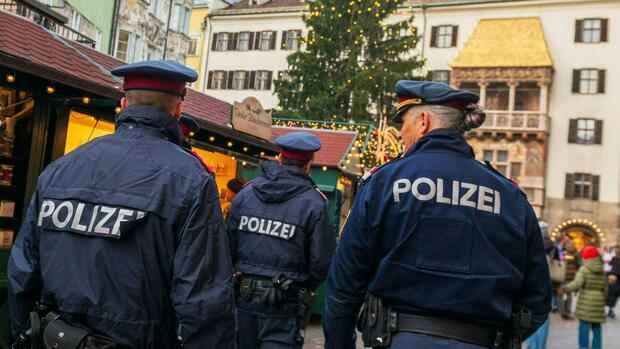The government made up of the ÖVP and the Greens announced a tough lockdown for all of Austria on Friday in Vienna after a meeting with the provincial governors in Tyrol. It is the fourth after those in March and November 2020 and around the turn of the year. The Austrian People’s Party (ÖVP) had thrown out their green junior partner’s idea of checking nightly curfews five days ago.
The paralysis of public life should initially apply for ten days and be extended by ten days. After that, there will be no lockdown for those who have been vaccinated or recovered, said Chancellor Alexander Schallenberg.
“In view of the infection rate, we have to take such measures. That hurts, ”said the ÖVP politician. Christmas is possible again for those who have been vaccinated and those who have recovered. At the same time, Schallenberg announced compulsory vaccination. A legislative process for this is to be started.
Top jobs of the day
Find the best jobs now and
be notified by email.
Shops that do not sell everyday necessities will be closed, as will hotels and restaurants. Economic aid is to be paid again.
“In view of the infection rate, we have to take such measures. It hurts.”
(Photo: Reuters)
Schools and kindergartens should remain open, said Health Minister Wolfgang Mückstein (The Greens). However, combined with the appeal to leave the children at home where possible.
Corona situation sharply acute
The decision was preceded by a week in which the corona situation across the country had once again worsened in a dramatic situation. The seven-day incidence per 100,000 inhabitants is 1000. For comparison: In Germany the value is currently 340.
The rapidly successive records of new infections – more than 15,000 were reported on Thursday – are not even reflected in the hospital occupancy figures. Nevertheless, there are now 2,329 patients in normal beds and 508 in intensive care units. That is significantly less than at the height of the second wave a year ago. But the extreme dynamics of the contagion let the politicians pull the rip cord.
The fact that Salzburg and Upper Austria, of all places, who had hesitated the longest before, went ahead on Thursday is just one more facet of the many contradictions: The two governors Winfried Haslauer and Thomas Stelzer imposed a tough lockdown. Nine days ago Haslauer portrayed such a virologist as a kind of fantasy of unrealistic virologists, on Tuesday he excluded him in order not to endanger the growing willingness to vaccinate due to the 2G rule.
But the hospitals’ calls for help, including quality restrictions in treatment and postponing acute cancer operations, apparently made him rethink. In Salzburg on Tuesday, doctors sounded the alarm that they were reaching their capacity limits. Triage is not imminent. However, a triage team was put together that, in an emergency, had to decide which patients could still be treated in intensive care.
The management of the Salzburger Landeskliniken (SALK) had turned to the State of Salzburg as the hospital operator with a dramatic appeal for help. An emergency situation threatens to arise in which intensive medical triages must be undertaken.
(Photo: dpa)
Added to this was the great pressure from experts and the media across the country. The combination also prompted the federal government and the other state governors to lockdown the entire country on Friday.
Does the lockdown really remain “short and sweet”?
However, it is doubtful whether this lockdown will really be “short and sweet”, as one hopes in Vienna. The government has lost a lot of trust with its numerous U-turns: In the summer, former Chancellor Sebastian Kurz announced several times that the pandemic was over for those vaccinated. This promise and the consideration of economic interests made his successor hesitate for a long time to take tough measures.
However, the current number of infections is unlikely to drop radically within a few days. The situation in the hospitals is also likely to worsen rather than relax for the time being.
In addition, there is a politically extremely polarized situation, with a strong corona and vaccination skepticism, which also has a political representation in the right-wing populist Freedom Party. The FPÖ has already called for a large demonstration on Saturday, to which thousands are expected in Vienna.
A bigger problem than these radical government opponents is likely to be corona fatigue in the general population. Rather, it will not adhere strictly to the restrictions, but circumvent them where possible. This contributed significantly to the fact that the last lockdown actually lasted from November 2020 to May 2021.
The government therefore wants to introduce compulsory vaccinations from February 2022. This would make Austria the first country in Europe to take such a radical step. For Schallenberg, however, this is the only step to avoid another wave and the next lockdown.
More: “Resilience is required in a crisis” – How Austria’s tourism has to reinvent itself
